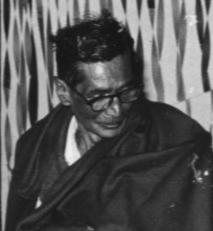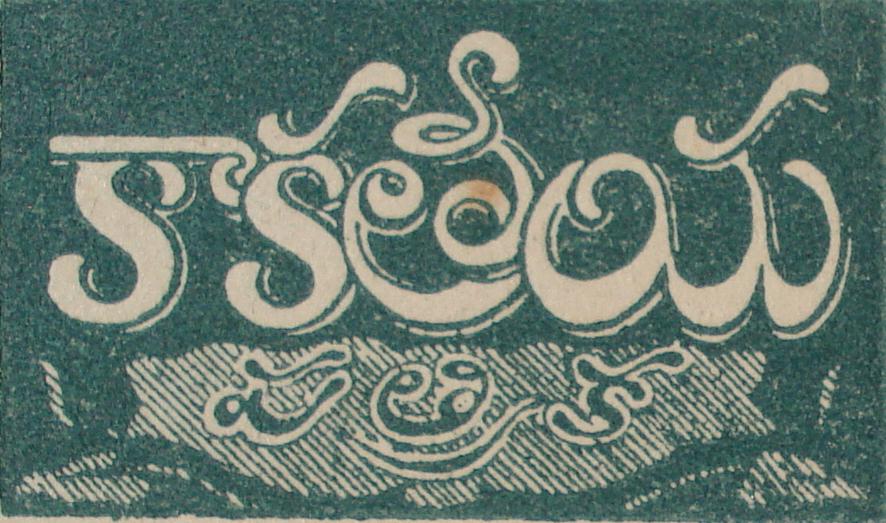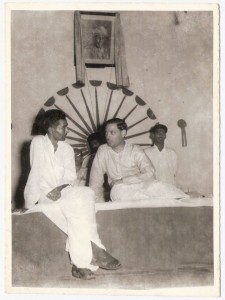
(A Lecture Delivered by Prof. M. Rajagopalachary, at Pamulaparthi Sadasiva Rao Memorial Endowment Lecture conducted at Kakatiya University annually).
I feel privileged to introduce Late Sri Pamulaparthi Sadasiva Rao, to this august audience, in whose honour this Endowment Lecture is arranged.
Pamulaparty Sadasiva Rao was a multifaceted genius who had greatly influenced the intellectual milieu of this region with his towering personality. He was a man of many parts. He was a free-lance journalist, art critic, musicologist, linguist, thinker and ideologue. He was a walking encyclopaedia, as it were. No subject was free from his scrutiny. He would extensively expatiate on subjects from Marx to Mars, Advaita to the latest technical educatio, Bharata’s Natya Shastra to Kakatiya Sculpture, psychiatry to hypnotism, world dramas to cinematography, global politics to village panchayats, communism to common sense. He would discuss them all with the same keen insights, tenacity, sincerity, and of course, with equal authority. His critical effort reminds me of Matthew Arnold’s definition of criticism, “a disinterested endeavour to learn and propagate the best that is thought and said in the world”. He had an uncomprimising sense of standards, research discipline and its rigours, though he was never groomed in the academic institutions. His writings radiate with rare insights, robust common sense and scintillating wit.
Sri Rao exemplified the Gandhian dictum: “Simple living and high thinking”. Though he was a fierce crusader in the freedom struggle, an active associate of the Communist Party of India, and brought to the notice of UNO [about] the violation of human rights [during] in Emergency, it is intriguing to note why he withdrew to his solitary study and led a life of quiet dignity eschewing all publicity. He was totally committed to the selfless intellectual pursuits, and led the life of a saint without ochre robes. His simplicity was disarming.
Sri Rao’s books on Marxism in Telugu entitled Gati Tarkika Vadam and Charitrika Bhoutika Vadam were quite popular among Communist Party circles. He translated a number of books in English on varied subjects into Telugu for Vishalandhra Publications and drew scholarly attention. He was one of the members of the editorial board of Sandesham, a magazine meant for the propogation of Dialectical Materialism. He translated Maurice Cornforth’s Theory of Knowledge into Telugu as Gnana Siddhantam with an original exposition. At the same time he did not hesitate to write comparing the extremes of Dialectical Materialism and Adi Sankara’s Advaita philosophy with convincing logic in Siddhantam magazine.
Sri Pamulaparthi Sadasiva Rao was one of the pioneers of journalism in Warangal. He edited Kakatiya Patrika way back in the 1940’s alongwith our former Prime Minister Late Sri P.V. Narasimha Rao, Ch. Raja Narendra, and Devulapalli Damodar Rao. PV and Sadasiva Rao used to contribute articles under the pen-name of Jaya-Vijaya which were very popular during those times. Though he shaped the careers of many political stalwarts, he was never in the limelight; yet he never regretted it. My father Late Sri M.S. Acharya, the doyen of Telugu Journalism of this region who published Janadharma weekly for 35 long years and Warangal Vani daily for 13 years, used to acknowledge Sri Sadasiva Rao as his Guru. Sri Rao played an important role when my father published a P.V. Felicitation Volume by contributing a lion’s share to it. He contributed regularly to Viswa Jyothi magazine edited by K. Narasimha Reddy. He reviewed both classical poetry and modern poetry including Digambara Kavulu for various papers and books. Many research scholars in Telugu and English used to consult him and benefit by his refreshing insights.
A music lover and critic, Sri Sadasiva Rao founded Kakatiya Kala Samithi and arranged a number of concerts in classical music, both Hindustani and Carnatic, by eminent singers. My uncle Sriman Madabhushanath Venkata Narsimhacharya, a Hindustani singer, was an active member of the Samithi and gave a number of concerts.
With the help of P.V. Narasimha Rao- his close associate, Sri Rao conducted Pothana Panchashati celebrations successfully in Warangal. He was responsible for the establishment of Pothana Vijnaana Peetham. He was actively associated with Vidyaranya Vidwat Goshti conducted by Kakatiya University, Warangal in 1988, in which his authoritative paper on Vidyaranya’s philosophy received accolades from scholars. It was published in the book Vidyaranya Bharathi published by the University. Even during the far end of his life, he delivered a series of lectures on Indian culture, philosophy, history, and fine arts on the lawns in the garden of Dr.Sampath Raja Ram, for about two years. Having lived a contented life of 76 years, he passed away on August 26,1996 leaving behind a wife, three sons and three daughters. This Endowment Lecture is organized to pay homage to his great contribution to the intellectual life of Warangal.



